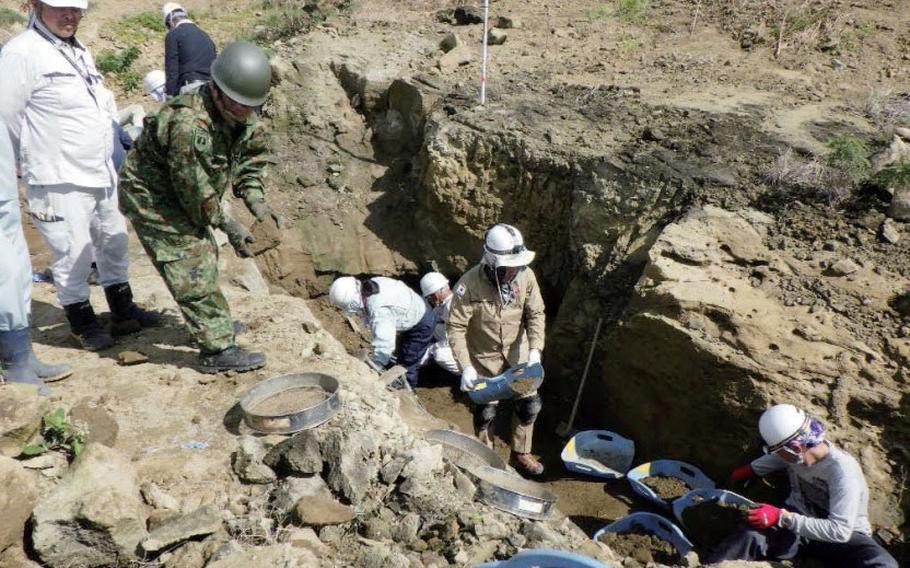
Personnel working for Japan's Ministry of Health, Labor and Welfare search for World War II remains in this undated photo. (Japan’s Ministry of Health, Labor and Welfare)
Japan has, for the first time, identified human remains from the Battle of Okinawa using only DNA testing, the Ministry of Health, Labor and Welfare said in a recent announcement.
DNA from the remains — discovered in 2004 in Nishihara, a town in southern Okinawa — was matched in late March with one of 1,818 reference samples provided by families of those believed to have died in the World War II battle, a ministry spokeswoman said by phone Friday.
The identity is being withheld pending the family’s permission to release it, she said.
This marks the first time in Japan that remains from the battle have been identified without the aid of personal artifacts or testimonies. Since Japan began using DNA analysis in 2003, only seven sets of remains from Okinawa have been identified, according to the ministry.
The Battle of Okinawa, which lasted from early April to late June 1945, resulted in the deaths of more than 14,000 U.S. service members, about 110,000 Japanese troops, and at least 140,000 Okinawan civilians. Since the battle’s end, the remains of more than 187,000 people have been recovered, according to the ministry’s website.
As of March, Japan had conducted DNA analysis on 7,026 sets of WWII-era remains found both domestically and abroad. Between 2017 and 2023, the ministry tested DNA from 600 sets of remains from Okinawa. It’s unclear how many additional tests have taken place since then.
In the six previous cases of identification from Okinawa, DNA evidence was supplemented by family interviews or personal items recovered with the remains. The ministry cited the region’s acidic soil and environmental conditions as reasons why obtaining viable DNA has been especially difficult.
“This time, the DNA was extracted in extremely good condition,” the spokeswoman said. It’s customary in Japan that some government officials speak to reporters on condition of anonymity.
The breakthrough follows a change in 2017, when the government relaxed its DNA testing criteria to allow for a broader application. Previously, the ministry would test DNA only if items found with the remains could be linked to specific families.
Unidentified remains are cremated and buried at either the Chidorigafuchi National Cemetery in Tokyo or the National Cemetery for War Dead on Okinawa.